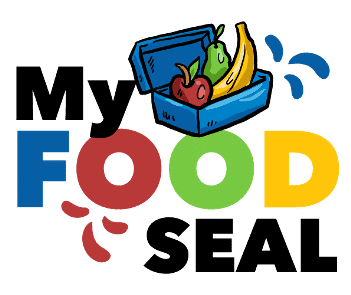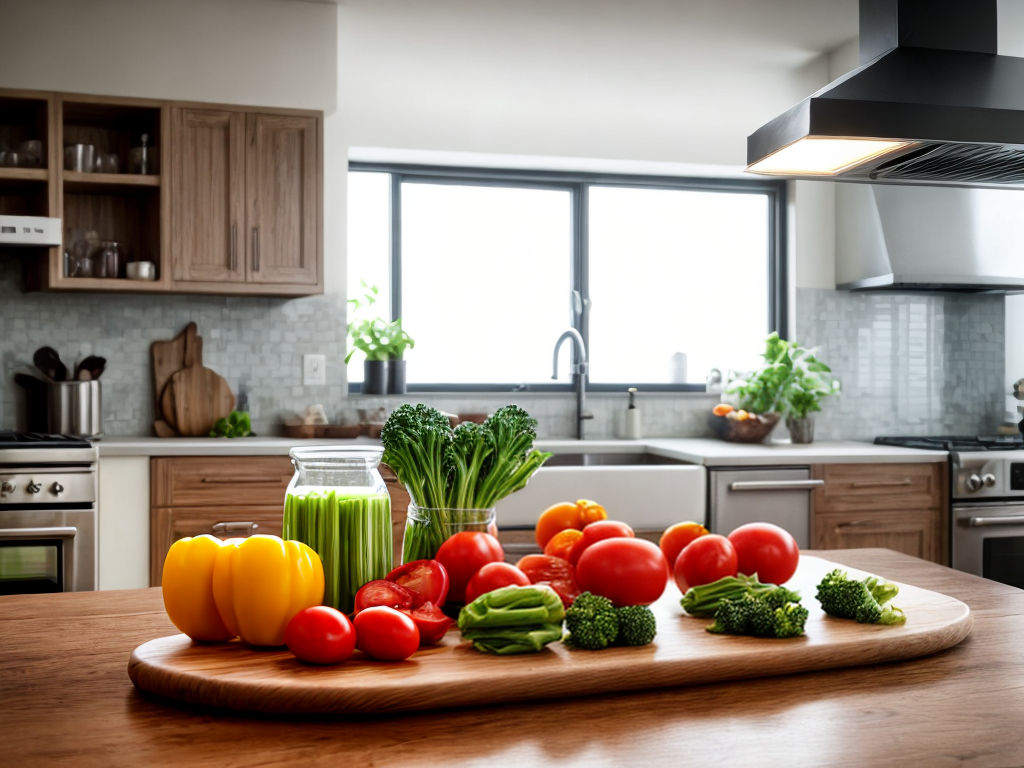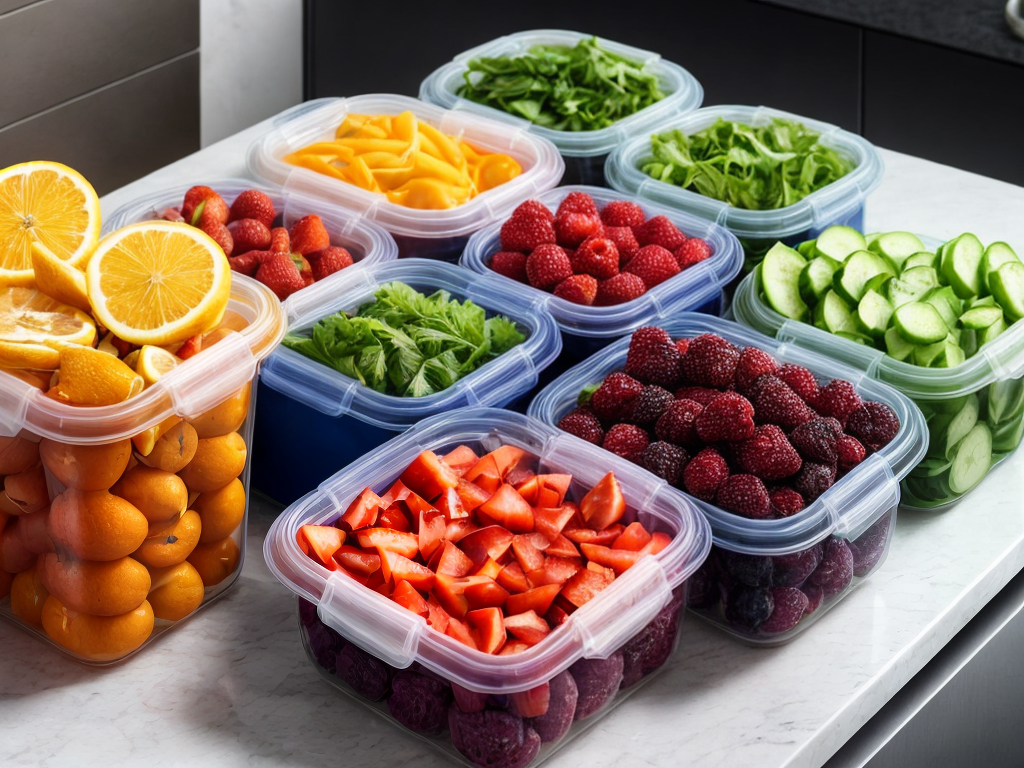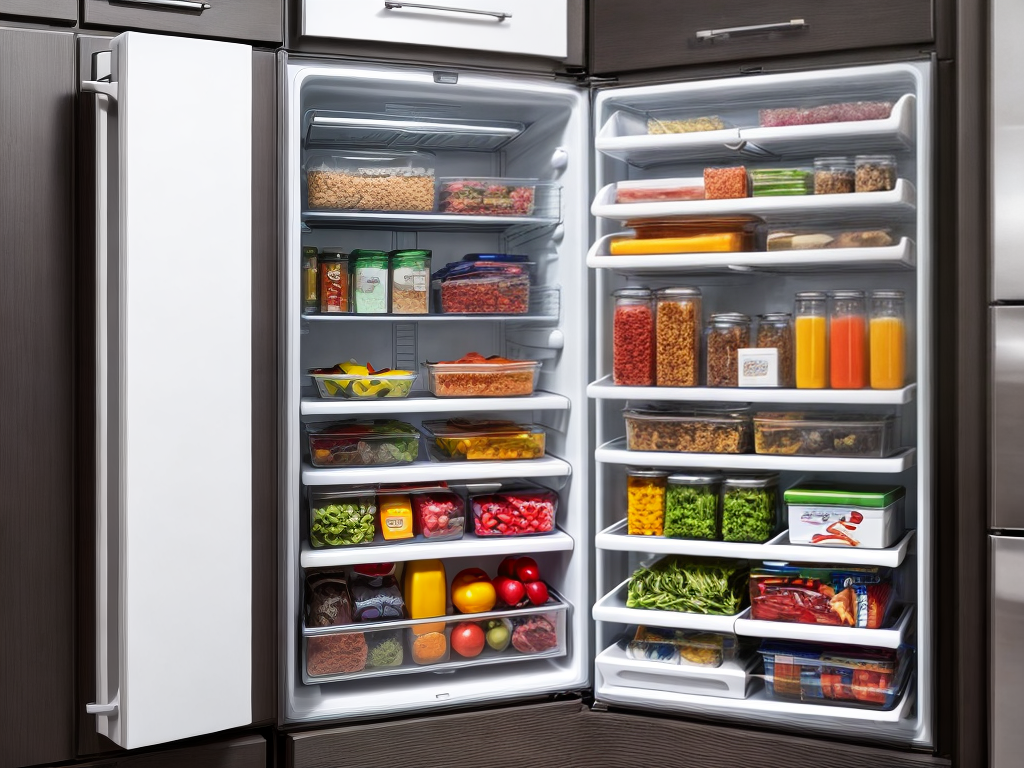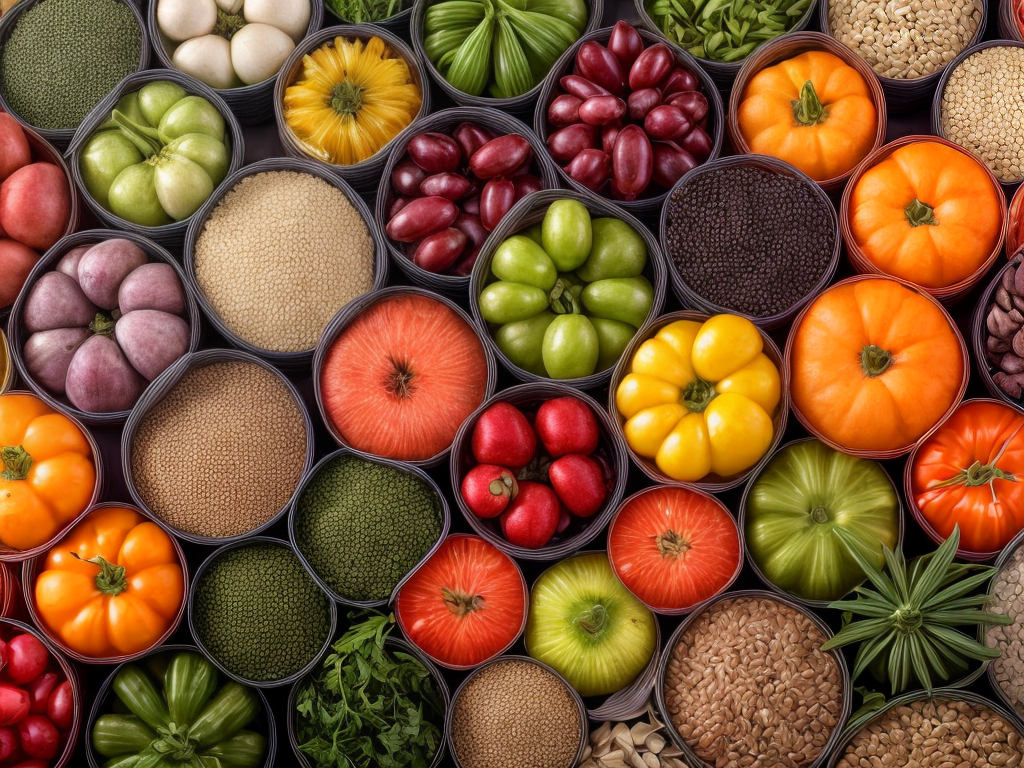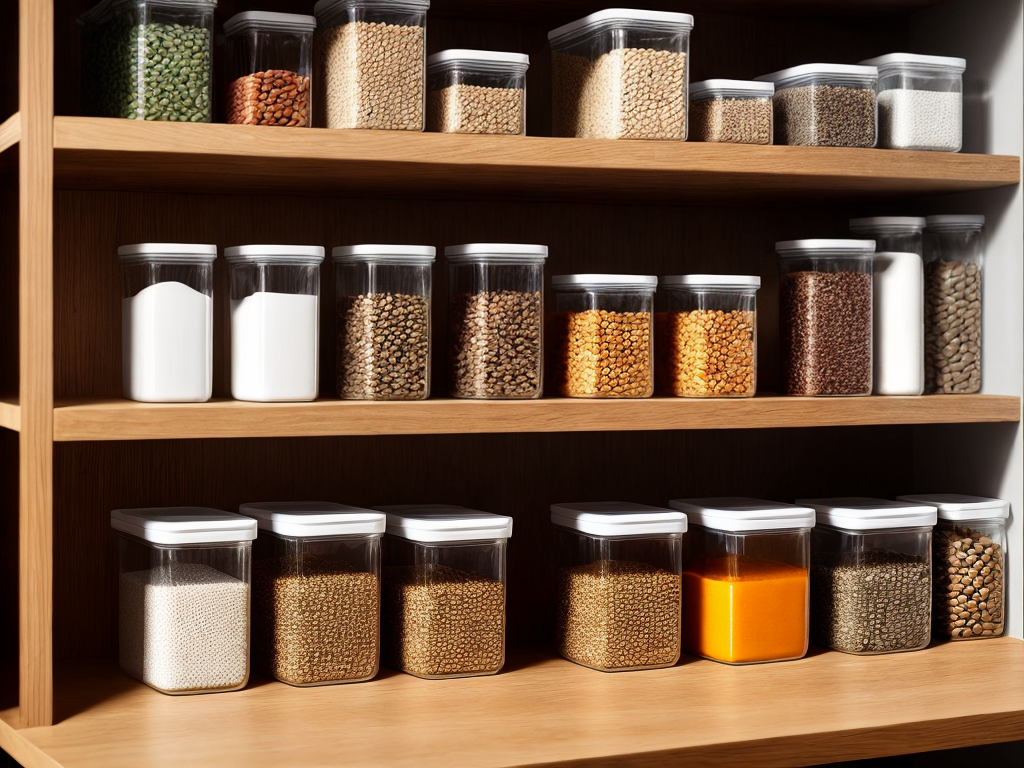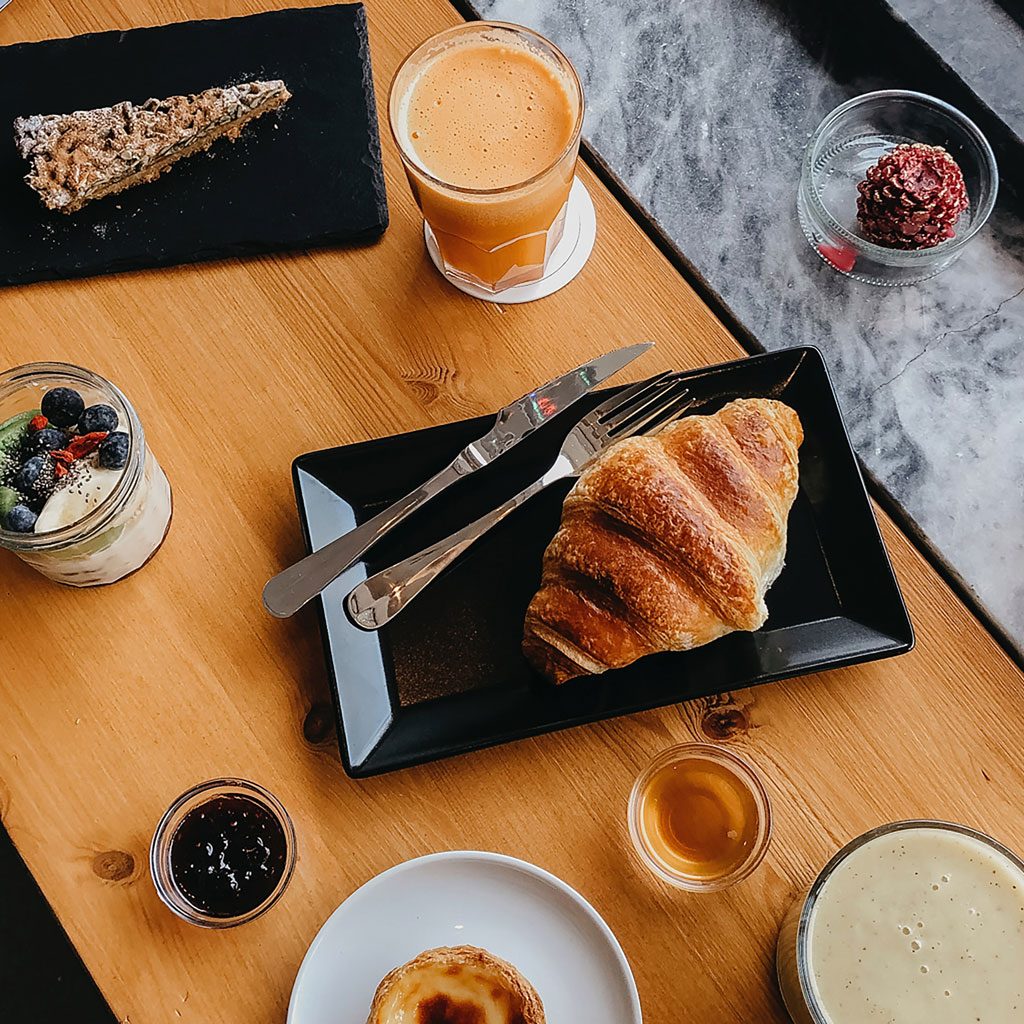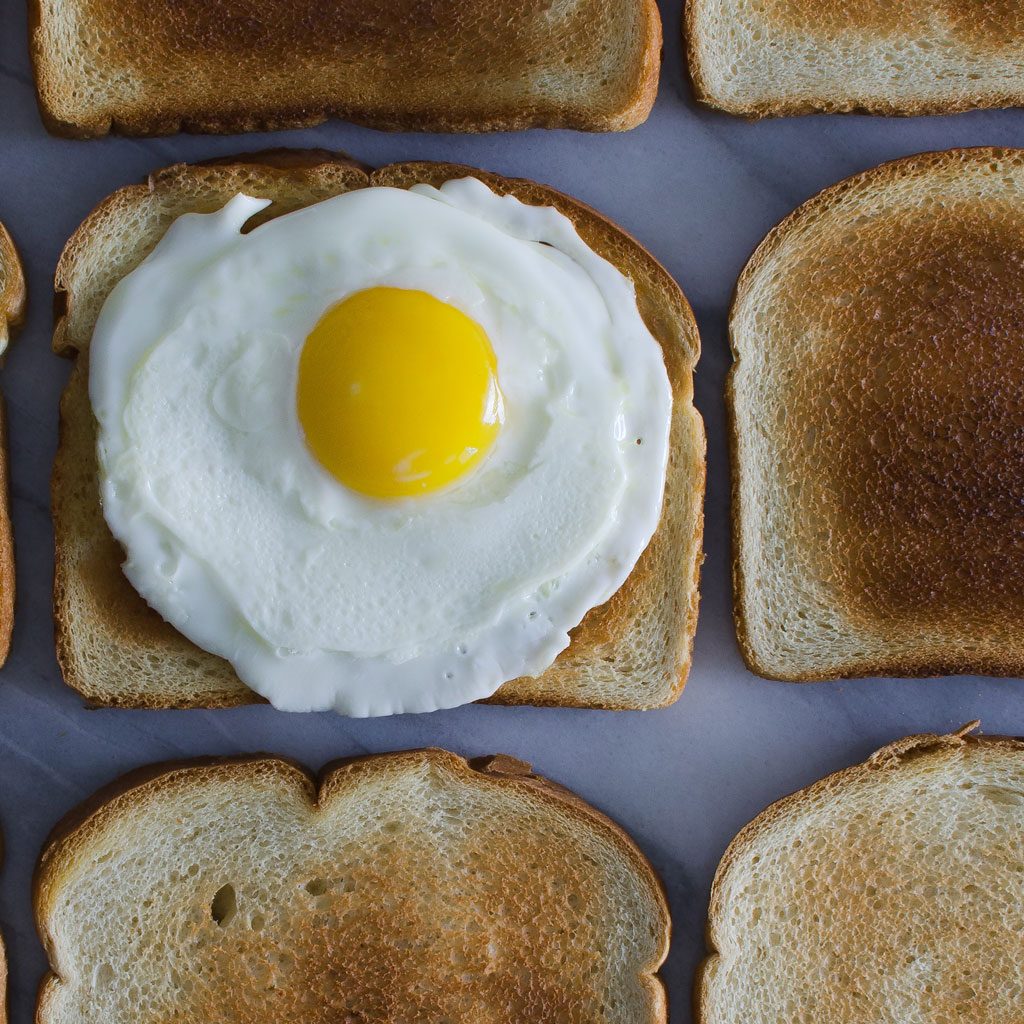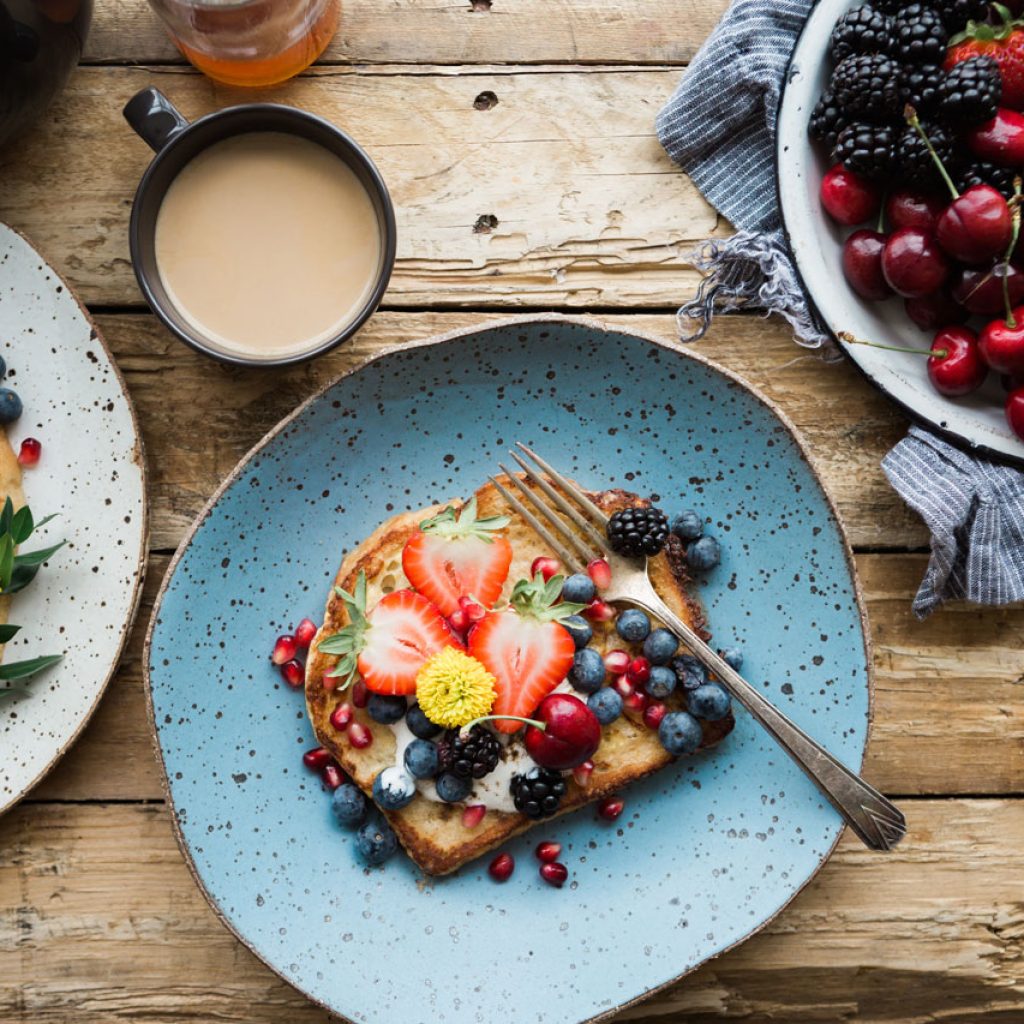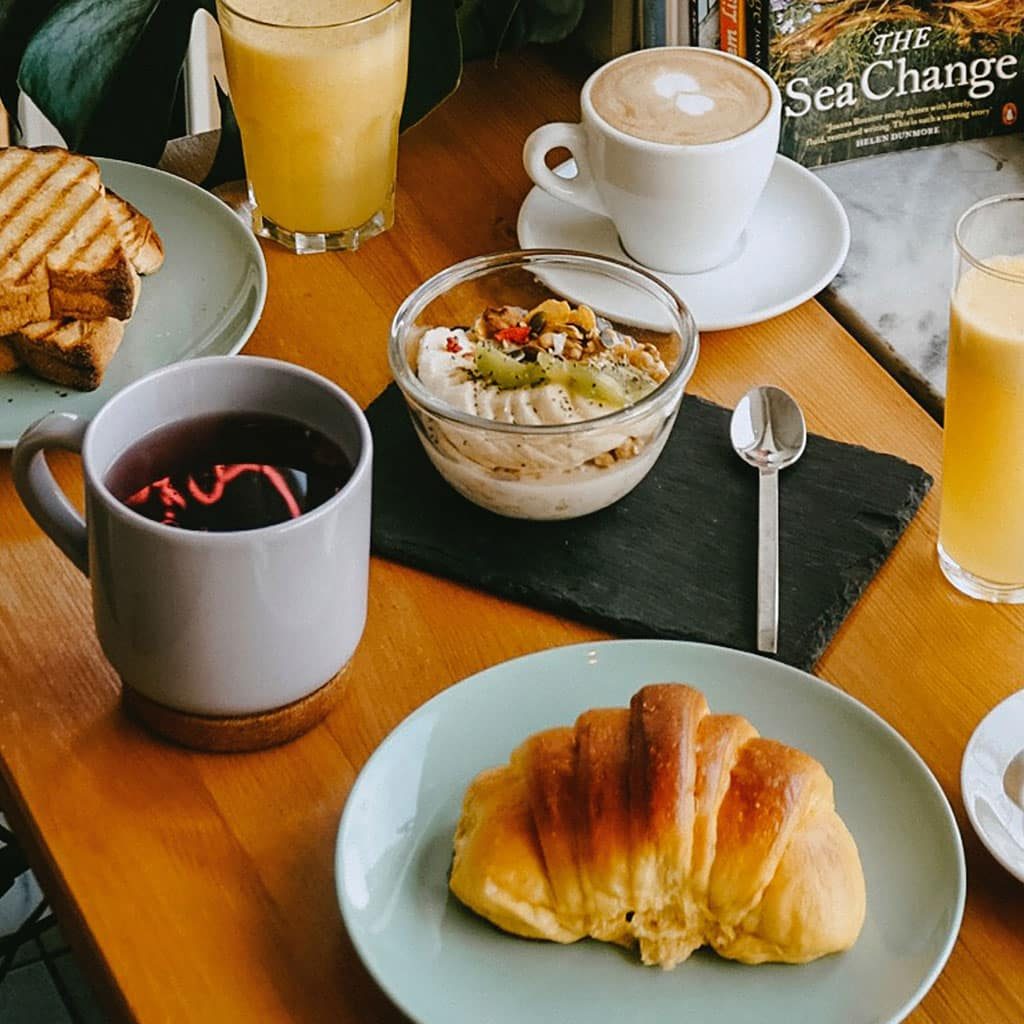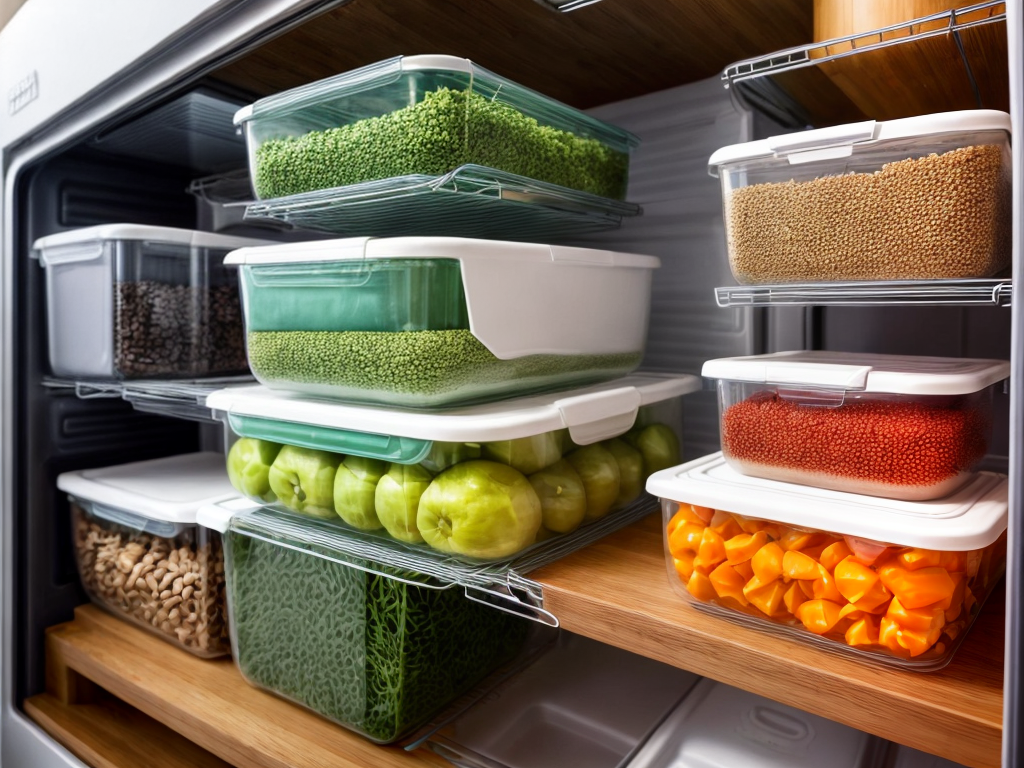
Did you know that the average American family wastes around $1,500 worth of food every year? It’s a staggering statistic that highlights the need for more sustainable food storage solutions. Luckily, there are plenty of options available to help us reduce waste in our kitchens. From glass jars and containers to beeswax wraps and silicone food storage bags, there are innovative and eco-friendly alternatives to single-use plastic. In this discussion, I’ll be exploring some of the best zero waste kitchen solutions, providing you with practical tips and ideas to minimize food waste and create a more sustainable kitchen. So, let’s dive in and discover how we can make a positive impact on both our wallets and the environment.
Glass Jars and Containers
Glass jars and containers are a versatile and eco-friendly solution for sustainable food storage. Reusable glassware is an excellent alternative to single-use plastic containers, reducing waste and minimizing our environmental impact. These airtight containers provide a safe and secure way to store all types of food, from leftovers to pantry staples.
One of the main benefits of using glass jars and containers is their durability. Unlike plastic, glass does not leach harmful chemicals into our food, ensuring that it remains fresh and uncontaminated. Additionally, glass is non-porous, preventing any odors or flavors from transferring between foods.
Glass containers also offer the advantage of being transparent, allowing us to easily see the contents and quantities of our stored food. This helps minimize waste by ensuring that we use what we have before it spoils. Furthermore, glass can be safely used in the freezer, microwave, and oven, providing convenient options for reheating and cooking.
Beeswax Wraps
To continue our exploration of sustainable food storage solutions, let’s now turn our attention to beeswax wraps. Beeswax wraps are a popular eco-friendly alternative to plastic wrap and aluminum foil. Here are three reasons why you should consider incorporating beeswax wraps into your kitchen:
-
Sustainable and Biodegradable: Beeswax wraps are made from organic cotton infused with beeswax, jojoba oil, and tree resin. These natural ingredients make the wraps biodegradable, ensuring they won’t contribute to landfill waste like traditional plastic wraps do.
-
Reusable and Versatile: Beeswax wraps can be used multiple times, reducing the need for single-use plastics. They are flexible and easily moldable, allowing you to wrap them around various shapes and sizes of food containers. Whether you’re covering a bowl, wrapping a sandwich, or preserving half-cut fruits and vegetables, beeswax wraps have got you covered.
-
Breathable and Antibacterial: Unlike plastic wrap, beeswax wraps allow food to breathe, preventing moisture buildup that can accelerate spoilage. Additionally, beeswax has natural antibacterial properties, helping to keep your food fresh for longer.
Silicone Food Storage Bags
Silicone food storage bags provide a versatile and eco-friendly alternative for storing and preserving food. These reusable alternatives offer numerous sustainability benefits, making them a popular choice among those seeking to reduce waste in their kitchens.
One of the main advantages of silicone food storage bags is their durability. Made from a non-toxic, food-grade silicone material, these bags are designed to withstand repeated use, eliminating the need for single-use plastic bags. This not only reduces waste but also saves money in the long run.
In addition to their durability, silicone food storage bags are also leak-proof and airtight, ensuring that food stays fresh for longer periods. This helps to reduce food waste and saves energy by minimizing the need for extra packaging or frequent trips to the grocery store.
Another key sustainability benefit of silicone food storage bags is their recyclability. Unlike traditional plastic bags, which can take hundreds of years to decompose, silicone bags can be recycled at specialized facilities. This further reduces their environmental impact and contributes to a more circular economy.
Stainless Steel Containers
I love using stainless steel containers for food storage because they offer numerous benefits. First, stainless steel is incredibly durable and long-lasting, making it a sustainable choice for storing food. Second, these containers are versatile and can be used for a variety of storage needs, from leftovers to meal prep. Overall, stainless steel containers are a reliable and eco-friendly option for sustainable food storage.
Benefits of Stainless Steel
Stainless steel containers offer a multitude of benefits when it comes to sustainable food storage. Here are three key advantages of using stainless steel containers:
-
Durability: Stainless steel is incredibly strong and resistant to scratches, dents, and corrosion. Unlike plastic containers which can break or crack easily, stainless steel containers are built to last. This means you can use them repeatedly without worrying about them wearing out or leaching harmful chemicals into your food.
-
Versatility: Stainless steel containers are suitable for both hot and cold food storage. They can be used in the refrigerator, freezer, oven, or even on the stovetop. This versatility makes them a practical choice for any kitchen.
-
Eco-friendly: Compared to plastic containers, stainless steel is a more sustainable option. It is recyclable and doesn’t release harmful toxins when exposed to heat or cold. Additionally, stainless steel containers are a better alternative to glass containers, as they are lighter and less prone to breakage.
Durability and Longevity
With its exceptional strength and resistance to damage, stainless steel containers are designed to withstand the test of time, making them a reliable choice for sustainable food storage. The durability of stainless steel ensures that these containers can endure frequent use without wearing out or breaking, reducing the need for constant replacements. This long-lasting quality makes them an eco-friendly packaging option as it minimizes waste and resources. Additionally, stainless steel is a sustainable material that can be recycled indefinitely, further contributing to its eco-friendly nature. Its non-toxic properties also make it a safe choice for storing food, without the risk of harmful chemicals leaching into your meals. By investing in stainless steel containers, you are not only choosing a durable and sustainable option but also promoting a zero waste kitchen.
Versatility in Storage
Are stainless steel containers a versatile solution for food storage? Absolutely! When it comes to versatile food containers, stainless steel is a top choice. Here are three reasons why:
-
Multi-purpose: Stainless steel containers can be used for a variety of food storage needs. They are perfect for storing leftovers, packing lunches, or even marinating meats. Their sturdy construction ensures that they can handle both hot and cold foods.
-
Stackable and space-saving: Stainless steel containers come in various sizes and shapes, making them easy to stack and store. This allows for efficient use of kitchen space and helps to keep your pantry or fridge organized.
-
Eco-friendly: By opting for stainless steel containers, you are choosing a sustainable and reusable option. They eliminate the need for single-use plastic bags or containers, reducing waste and promoting a zero-waste kitchen.
With their versatility and creative storage solutions, stainless steel containers are a must-have for anyone striving for a sustainable and well-organized kitchen.
Compostable Food Storage Bags
I’ve been looking into sustainable food storage solutions, and one option that caught my attention is compostable food storage bags. These bags are eco-friendly alternatives to traditional plastic bags and offer several benefits. Not only are they made from renewable resources, but they also break down naturally, reducing environmental impact. It’s important to know the proper disposal methods for these bags to ensure they can be composted effectively.
Eco-Friendly Alternatives
To provide sustainable alternatives for food storage, compostable bags offer an eco-friendly solution. These bags are made from plant-based materials, such as cornstarch or vegetable oils, which are renewable resources. They are designed to break down naturally in composting systems, reducing waste and minimizing environmental impact. Compostable bags provide several benefits for eco-conscious individuals looking to adopt a zero-waste lifestyle:
-
Environmentally friendly packaging: Compostable bags help reduce reliance on single-use plastics and contribute to a more sustainable packaging industry.
-
Sustainable food preservation: These bags are an excellent option for storing fruits, vegetables, and other perishable items, keeping them fresh for longer while minimizing food waste.
-
Easy disposal: Compostable bags can be conveniently disposed of in compost bins or municipal composting facilities, where they will break down into nutrient-rich compost that can be used to nourish plants and soil.
Benefits of Compostable Bags
Compostable bags offer numerous benefits for sustainable food storage, making them an ideal choice for eco-conscious individuals seeking to reduce plastic waste and preserve the freshness of their perishable items. These bags are made from plant-based materials such as cornstarch, potato starch, or sugarcane fiber, and they break down into organic matter when composted. Unlike traditional plastic bags, compostable bags do not contribute to the accumulation of harmful plastic waste in landfills, oceans, and ecosystems. Additionally, they have a lower carbon footprint and require fewer resources to produce compared to their counterparts. By using compostable bag alternatives, we can reduce the environmental impact associated with single-use plastic bags and promote a more sustainable approach to food storage.
Proper Disposal Methods
Properly disposing of compostable food storage bags is essential for ensuring their organic breakdown and minimizing environmental impact. To effectively manage your waste and contribute to sustainable waste management, follow these proper disposal methods:
-
Separate: Separate compostable food storage bags from other types of waste, such as plastics or recyclables, to prevent contamination.
-
Compost: Place the compostable bags in a compost bin or pile. Ensure that the composting conditions, such as temperature and moisture, are optimal for efficient decomposition.
-
Municipal Composting: Check if your local municipality has a composting program that accepts compostable bags. If they do, follow their guidelines for proper disposal.
Reusable Produce Bags
I highly recommend using reusable produce bags for a more sustainable and eco-friendly way to store your fruits and vegetables. Not only do these bags help reduce single-use plastic waste, but they also offer several benefits. First and foremost, reusable produce bags are durable and can be used over and over again, making them a cost-effective choice in the long run. Additionally, they are lightweight and breathable, which helps to maintain the freshness of your produce for a longer period.
When choosing the right size of reusable produce bags, consider the types of fruits and vegetables you typically buy. Opt for smaller bags for items like berries or cherry tomatoes, and larger bags for bulkier produce like lettuce or broccoli. It’s also important to select bags made from the right material. Look for options made from natural fibers like organic cotton or hemp, as these materials are biodegradable and have a lower environmental impact compared to synthetic materials.
Vacuum Sealing Systems
Vacuum sealing systems are a practical and efficient solution for prolonging the shelf life of your food. Here are three reasons why they are beneficial for sustainable food storage:
-
Preservation: By removing air from the packaging, vacuum sealing systems create an airtight environment that helps prevent spoilage and bacterial growth. This not only extends the freshness of your food but also reduces the need for preservatives and additives, contributing to a healthier and more natural diet.
-
Reduced food waste: With vacuum sealing, you can extend the lifespan of perishable items like meats, vegetables, and leftovers. By keeping them fresh for longer periods, you can reduce food waste and save money by avoiding unnecessary grocery trips or takeout orders.
-
Eco-friendly packaging: Vacuum sealing systems often use reusable bags or containers, which significantly reduce the need for single-use plastic wrap or disposable food storage bags. By opting for these sustainable packaging options, you can minimize your environmental impact and contribute to a greener, more sustainable future.
Vacuum sealing systems offer numerous benefits for sustainable food storage. They help preserve the quality of your food, reduce waste, and provide eco-friendly packaging options. Incorporating this method into your kitchen routine can be a simple yet effective step towards a more sustainable lifestyle.
Mason Jars and Reusable Lids
To further explore sustainable food storage solutions, let’s now turn our attention to the practicality and versatility of using mason jars and reusable lids. Mason jars have become a popular choice for storing food due to their durability and eco-friendly nature. Not only are they reusable and long-lasting, but they also offer a wide range of creative upcycling ideas and mason jar crafts.
Mason jars come in various sizes and are perfect for storing dry goods such as rice, pasta, and nuts. They can also be used for preserving fruits, pickles, and homemade sauces. The airtight seal provided by the reusable lids ensures that the food stays fresh for longer periods, reducing food waste.
In addition to their functionality as food storage containers, mason jars can be transformed into decorative items for your kitchen. They can be painted, decorated with ribbons or labels, and used as flower vases or candle holders. The possibilities are endless when it comes to using mason jars for creative upcycling projects.
To give you a better idea of the versatility of mason jars in the kitchen, here’s a table showcasing some creative upcycling ideas:
| Upcycling Idea | Description |
|---|---|
| Mason Jar Herb Garden | Grow fresh herbs in mason jars on your windowsill for easy access to flavor. |
| Mason Jar Smoothie | Blend your favorite smoothie ingredients directly in a mason jar. |
| Mason Jar Salad | Layer your salad ingredients in a mason jar for a grab-and-go lunch. |
| Mason Jar Snack Container | Use mason jars to store snacks like granola, trail mix, or dried fruits. |
| Mason Jar Meal Prep | Prep your meals in advance and store them in mason jars for portion control. |
Conclusion
In conclusion, adopting sustainable food storage solutions is a key step towards achieving a zero waste kitchen. By using glass jars and containers, beeswax wraps, silicone food storage bags, stainless steel containers, compostable food storage bags, reusable produce bags, and vacuum sealing systems, we can reduce our reliance on single-use plastics and minimize food waste. These alternatives are not only environmentally friendly but also practical and convenient for everyday use. Let’s make a conscious effort to create a more sustainable and waste-free kitchen.
